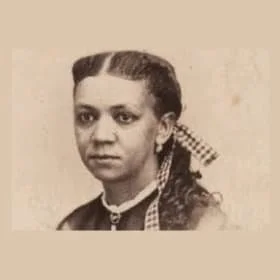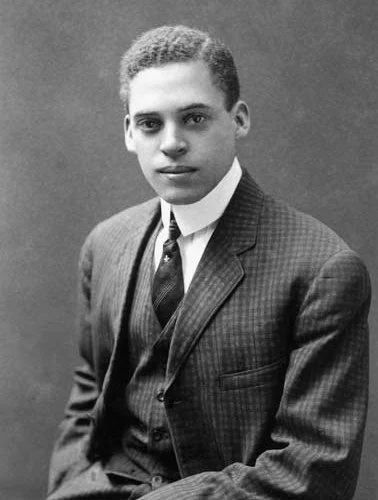Fannie Jackson Coppin
Fannie Jackson Coppin 1837 - 1913
Though Fannie Jackson Coppin was born enslaved in Washington D.C. Her legacy is one of triumph and selfless dedication to supporting the education of Black youth. Coppin’s aunt was able to purchase and remove her from enslavement at the age of 12. Soon after, Coppin was sent to New England, to live with a different aunt.
Coppin was able to articulate the intense pressure Black people endure when entering academic and professional settings (or spaces that traditionally exclude them). In speaking of her college experience Fannie stated, “I never rose to recite in my classes at Oberlin but I felt that I had the honor of the whole African race upon my shoulders. I felt that, should I fail, it would be ascribed to the fact that I was colored. This explanation, while brief, pinpoints the unspoken reality for Black students in predominantly white institutions. When Coppin graduated from Oberlin in 1865, she was just one of three Black women in U.S. history to have earned a bachelor’s degree.
If it’s true that ‘people are born to’ perform certain acts, or that we each have a particular destiny, then it stands to reason that Fannie Jackson Coppin was put on this planet to educate. In Coppin’s words, “It was in me to get an education and to teach my people. This was deep in my soul.”
After graduating, Coppin was recruited to teach Greek, Latin and Higher Mathematics at Philadelphia’s Institute For Colored Youth. The Quakers founded this institution with the central goal of disproving eugenist (white supremacist) theories about Black people possessing inherent inferiorities that made them more suited to conduct manual slave labor.
During Coppin’s tenure at the institute, she served as principal of the girl’s high school. This made Coppin the first Black female school principal in U.S. History. Within a few months, Coppin successfully introduced a school department (similar to the structure of academic institutions that we recognize as ‘traditional’). Coppin indirectly motivated countless aspiring scholars to pursue educating as a profession.
At Coppin’s direction, the Institute For Colored Youth began offering vocational training. In Coppin’s view, a lack of vocational skills proved costly for Black people entering the job market. Thus, societal realities necessitated this innovation, and the Institute jumpstarted its vocational training model with ten trades. After decades of enviable leadership, in 1902 Fannie Jackson Coppin retired from the Institute.
Coppin’s Institute was moved two years after her retirement, to Cheney, Pennsylvania. One half century later, the Institute (with its established new home in Cheney, Pennsylvania) was renamed Cheyney State College and eventually Cheyney University of Pennsylvania, the nation’s first HBCU.
Fannie Jackson Coppin State University (or more simply, Coppin State) in Baltimore, Maryland is an elite liberal arts HBCU that prides itself on teacher preparation. As its namesake, the education maven Mrs. Fannie Jackson Coppin intended a century ago, this institution was designed for training and supporting the real life application of learning.
























